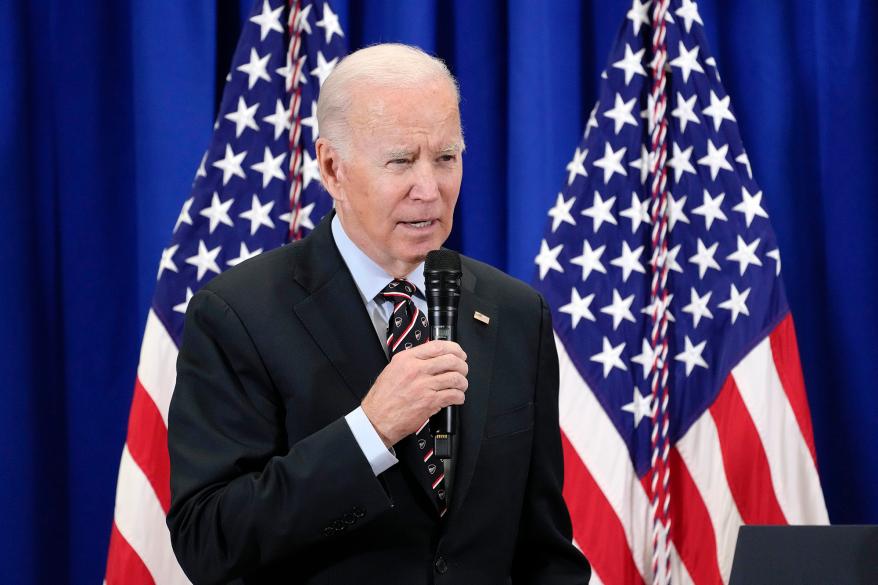Stop taxing soldiers stationed in Kenya
New York’s Congress members are urging President Biden to stop taxing soldiers serving in terror-ravaged Kenya — including fighters from the Big Apple’s famous “Fighting 69th” Infantry.
Military personnel are exempt from paying federal income taxes — and any New York state or local income taxes — during the time they serve in designated “combat” zones.
Members of the Army’s 69th Regiment were recently deployed to Somalia, Djibouti and Kenya.
But unlike the other countries, Kenya is not designated a dangerous combat zone and American soldiers assigned there are paying taxes while on duty.
Rep. Nicole Malliotakis (R-Staten Island/Brooklyn) sent a letter to Biden and Defense Secretary Lloyd Austin to extend the combat tax relief to soldiers assigned to Kenya.
The letter was co-signed by House Republican Conference Chairwoman Elise Stefanik and Queens Rep. Grace Meng (D-Queens) and upstate Rep. Claudia Tenney (R-Utica/Binghamton.
The lawmakers said they targeted the tax unfairness for active duty soldiers stationed in Kenya after seeing an article about the issue in The Post.
“We write to express our concern regarding the lack of parity on the taxation rate of Soldiers of the New York State National Guard who are currently conducting military operations in the Horn of Africa under the name Task Force Wolfhound.
“The task force is comprised of National Guard Soldiers from across the great state of New York, the core of which is composed of the 1st Battalion 69th Infantry which is headquartered in New York City,” the Dec. 15 letter from the Congress members to Biden said.
“Task Force Wolfhound is operating in the countries of Djibouti, Somalia, and Kenya. While both Djibouti and Somalia carry the Department of Defense designation as a combat zone which qualifies military personnel assigned to these countries to Combat Zone Tax Exclusions (CZTE), Kenya does not have this designation. This means that Soldiers facing the same regional threats as their peers would not be eligible
The House members added, “For Djibouti and Somalia to be designated as combat zones, while Kenya, a nation plagued by terror attacks on behalf of the Al-Shabaab militant group is not, is placing New York’s National Guard Soldiers in harm’s way and allowing them to be taxed on the income that they receive while defending American freedom and values.

They noted the State Department prohibits government employees from traveling to sections of Kenya due to the level of concern for terrorist attacks.
“If the United States can prohibit our government employees from traveling to these regions due to the dangers associated with the area, how is this same area not recognized as a combat zone for our military personnel?,” they said.
As an example of terrorist activities, the lawmakers noted that Al-Shabab militants had launched a predawn raid on Jan. 5, 2020, on an airstrip used by the US and Kenyan militaries, located on Kenya’s coast near its border with Somalia, killing one US service member and two American private contractors and “destroyed $71.5 million of U.S. government resources.”

The letter shows there is bipartisan support for extending the combat tax relief designation to American soldiers in Kenya. Malliotakis, Stefanik and Tenney are Republicans and Meng is a Democrat.
Former Democratic congressman Max Rose, of Staten Island, a combat veteran who served in the 69th Infantry, previously called out the disparate tax treatment for soldiers stationed in Kenya.
Malliotakis defeated rival Rose in the 2020 election and in their rematch last month — but they are on the same page in opposing the tax on soldiers.
The House members concluded in the letter to Biden: “After having given so much to the United States, American service members should not have to pay the United States government for being placed in harm’s way. We urge your Administration to formally designate Kenya a combat zone to ensure our service members are eligible for the CZTE [Combat Zone Tax Exclusions] and the benefits they deserve.”
The White House had no immediate comment.
Read the full article Here







